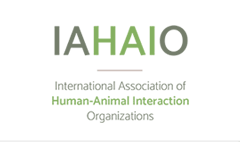Abstract
Veterinary hospice is a philosophy of care that seeks to maintain comfort and quality of life for terminally ill or geriatric animals. The practice is in its infancy in the United Kingdom (UK) and the needs and wants of caregivers are therefore not clearly understood. This study explored the unique perspectives and experiences of guardians undertaking hospice care for their dying canine and feline companions, filling an immediate knowledge gap in this field of study. Semi-structured telephone interviews were conducted with 15 hospice caregivers, consisting of 11 females and 4 males, sharing personal experiences with 17 dogs and 4 cats. Each interview was recorded and personally transcribed by the primary author. Inductive thematic analysis allowed an organic approach to data coding and theme development. Aspects relating to love (motivational aspects associated with the provision of hospice care), comfort (indicators used as a barometer of continued care), peace (aspirational goals associated with the provision of a “good death”), collaboration (aspects of the vet-guardian relationship and impact on end-of- life decisions), and selflessness (guardian attitudes toward and residual effects of caregiving) were identified as master themes most frequently affecting the end-of- life decision-making process. Analysis indicated that the provision of hospice care was a highly emotional experience for caregivers. Motivation to provide care was driven by the strength of love and sense of duty for their animals. In contrast, strength of love often impeded objective decision making. The decisions necessary during end-of- life were largely informed by the level of caregiver experience and the nature of the relationship with their veterinarian. This study highlights the need for a formal approach to veterinary hospice to support caregiver wellness and ensure animal welfare.
Recommended Citation
Riches, Amanda and Brigden, Charlotte
(2024)
"I Would Do Anything for You: Exploring the Experiences of Guardians Providing Hospice Care for Their Dying Companion Animals,"
People and Animals: The International Journal of Research and Practice: Vol. 7
:
Iss.
1,
Article 16.
Available at:
https://docs.lib.purdue.edu/paij/vol7/iss1/16


